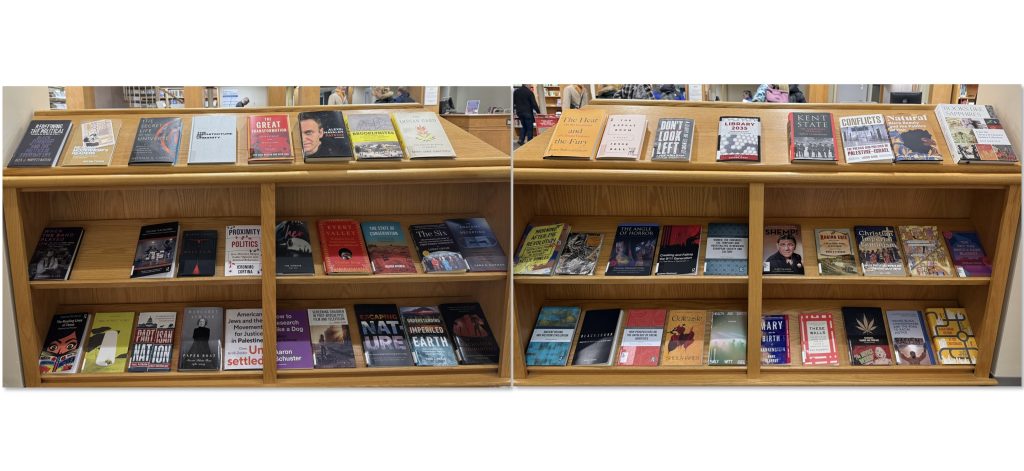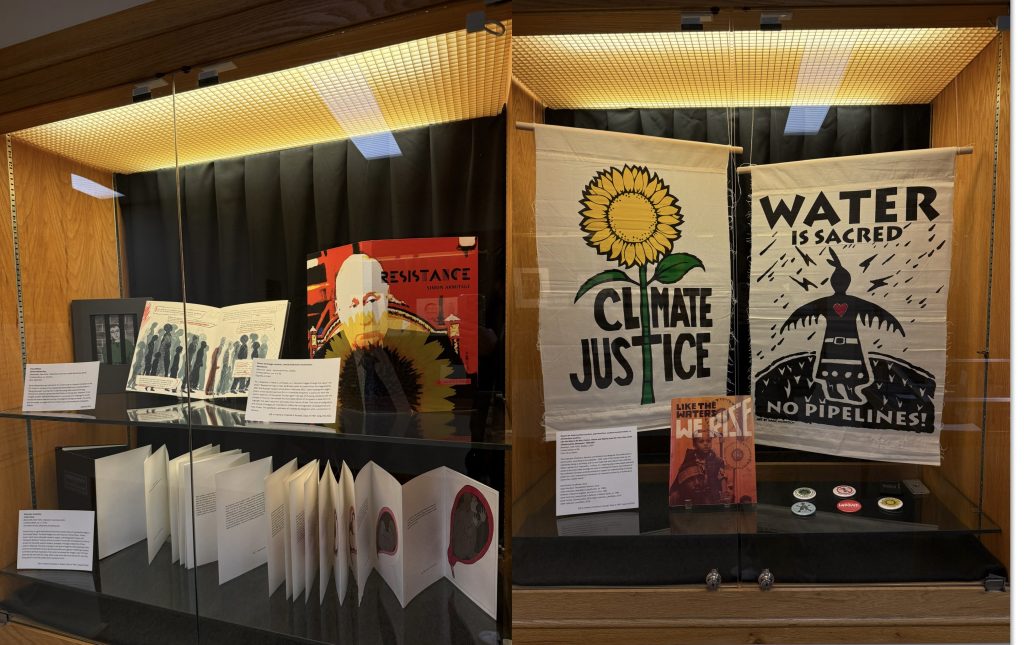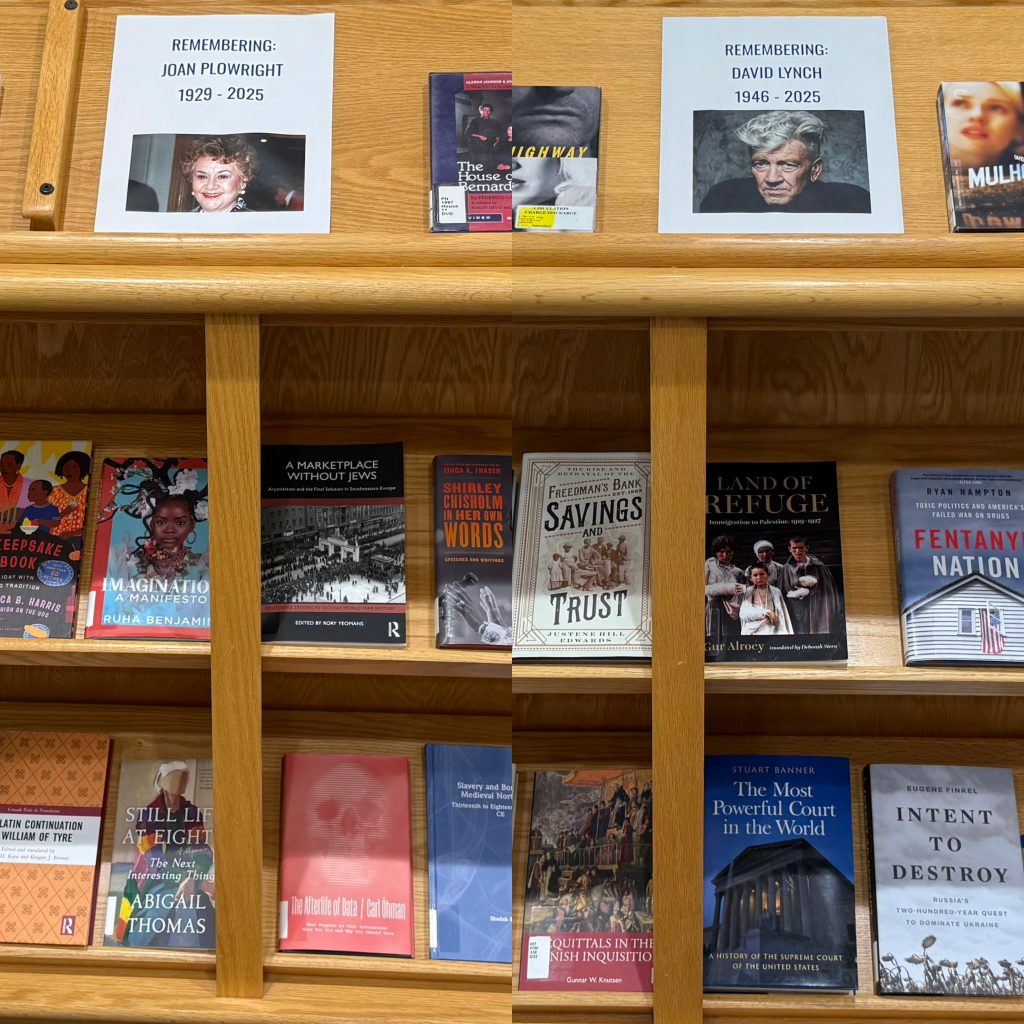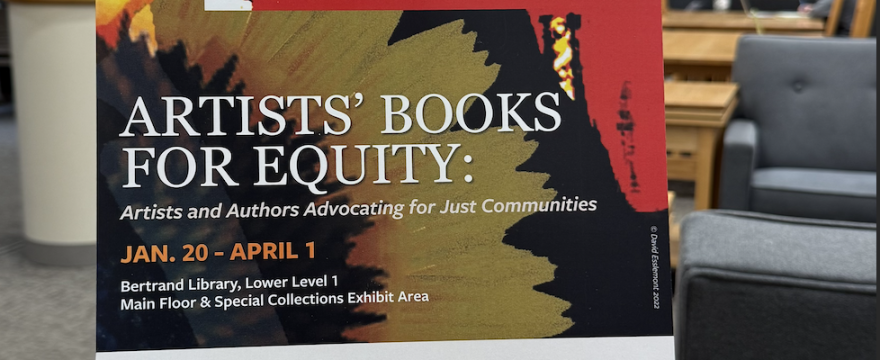In his famous I Have a Dream speech, Dr. Martin Luther King Jr. called for national recognition and accountability— a plea that, as time passes, remains as necessary and as relevant today as it was then. Yet, this recognition has today become reduced to platitude, repeated in mainstream media whenever another avoidable, often expected tragedy occurs, fostering an attitude of helpless acceptance—that it is what it is.
Each year, in the week following M.L.K Day, Bucknell commemorates his life and legacy with special events, panels, and guest speaker seminars. One such event, Artists Books for Equity, is a new library exhibit showcasing books, artwork, and other printed pieces related to themes of justice, equality, and human rights.

What I saw when I visited the exhibit, was humanity’s failure on full display. There was no singular dream, no unified vision for a better world, but a thousand fractured dreams heaped upon the other— each with their own desperate plea for recognition, for accountability, for justice or mercy. Every book was another fatal wound on the collective human body, another portrayal of humanity in crisis.

Basic human rights are being debated in capital buildings, courthouses, and comment sections. The world is at war, or genocide, depending a person’s ‘political sentiments,’ because the context in which innocent people are killed matters to the people complicit in paying for it. Billionaires are buying governments and being gunned down in the streets. The planet is underwater and on fire. Planes are falling from the sky. The climate is changing, the planets are aligning, protests and riots continue, racial injustice continues, gender inequality continues, class clashes continue, climate disasters continue, corporate greed continues, the Grammys and the red carpets continue— we cower from recognition, but we run from accountability, the majority of our world leaders are committed to complicit concession of moral depravity for concealed compensation. It is what it is. Right?

The exhibit was like a full-body checkup for the collective human body, and the prognosis felt fatal. It was impossible not to leave the exhibit without feeling overwhelmed, unfocused, and hopeless. On the backs of the display cases, were shelves dedicated to recent fallen figures— a collection separate from the exhibit yet inseparable in message. It was a stark reminder of yet another threat facing humanity, the backdrop for all the others, and the only one without a solution: death.

Yet, perhaps in facing our collective failings, in confronting not one but the entire overwhelming and never-ceasing heap of depravity, we might find a way beyond the defeated mentality of hopeless acceptance so many of us have been conditioned to develop; we might get angry enough, or passionate enough, to act– to clear out the temple with disruptive action. Then, maybe, the threat of death will be enough.
–Ryleigh Roberts
